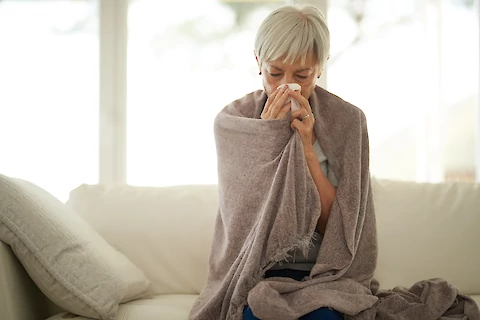
How Seasonal Allergies Can Reduce as We Age
Seasonal allergies can develop at any stage of life. Even something as simple as moving to a new location can cause people who were once entirely allergy-free to experience unpleasant reactions to common allergens. Surprisingly, however, many aging adults find that their seasonal allergies gradually abate with time. Research shows that changes in immune functioning during the golden years can make the normal allergy season infinitely more tolerable.
At Senior Helpers of South Bend, we believe that improvements in seasonal allergies can be a positive thing. However, it's still important to investigate their possible underlying causes.
Why Do Seasonal Allergies Reduce as People Grow Older?
Allergies are a heightened immune response to foreign environmental agents. The body reacts to suspected invaders by producing a substance known as immunoglobulin E. This substance creates a chain reaction of sniffles, wheezing, watery eyes, and other discomforts. Whether it's dust mites, mold spores, or pollen that sets a person to sneeze, the body's response is an effort to protect itself. Thus, although allergic reactions are unpleasant, they can also be a sign of robust immunity.
For aging adults, decreased allergic reactions have less to do with environmental change or increased tolerance. Instead, they are frequently the result of waning immune system activity.
Is Decreasing Allergies a Good Sign?
Decreases in allergic reactions are certainly enjoyable. However, for aging adults and their caregivers, it's important to determine whether these changes are the result of an age-related decline in immune functioning. It may be that issues pertaining to the immune system are completely correctable. For instance, sometimes immunity declines due to common nutritional deficiencies.
Aging adults need fewer calories than they once did while still in the developmental stages of life. However, this doesn't decrease their need for adequate nutritional support. Rather than focusing on eating less, many seniors should be focusing on consuming higher-quality foods. As such, if your loved one was once prone to severe bouts of seasonal allergies and suddenly needs no allergy support, it's a good idea to consult with a nutritionist, a naturopath, or their general doctor to determine whether deficiencies exist.
For age-in-place seniors in Goshen and the surrounding communities who are cooking for themselves, Senior Helpers can provide hearty, home-cooked meals that are rich with a diverse range of essential nutrients.
Acquiring these services for age-in-place seniors who are largely subsisting on low-value, processed foods is an easy way to make sure that they're getting an ample array of vitamins, minerals, heart-healthy fats, and phytonutrients from their diets. If necessary, you can also get supplementation advice from your loved one's general doctor or other medical providers.
Immune Shifting and Hormonal Changes
Dramatic decreases in seasonal allergies during the golden years can also be the result of hormonal changes. Women are more prone to experiencing severe seasonal allergy symptoms when their estrogen levels are high. They typically experience fewer allergy symptoms (or no symptoms at all) as they enter perimenopause and then menopause.
Hormone-related decreases in allergy symptoms can also indicate hormone-related decreases in immune functioning. For this and other reasons, a sudden cessation of seasonal allergy symptoms is always pleasant. However, efforts to obtain regular preventative healthcare during allergy season shouldn't cease. In fact, this is a change that's important to discuss with your senior loved one's doctor during their next appointment. Investigating the possible reasons why allergy symptoms have gone away will rule out or highlight underlying general health issues that may require medical intervention.
Final Thoughts
Whether supplementing, working with Senior Helpers in Elkhart to obtain meal preparation services, or addressing dramatic changes in your loved one's hormone profile, it's best to verify that new responses to seasonal allergens aren't indicative of something else.
More often than not, aging adults are simply enjoying a down cycle in seasonal allergies—one that will make them less prone to itchy, watery eyes, nasal congestion, and other unpleasant reactions for the remainder of their lives.
When nutrition-related problems do exist, our companion care services can help mitigate them. If you are in Elkhart, Mishawaka, and Goshen areas,contact Senior Helpers today to find out more.